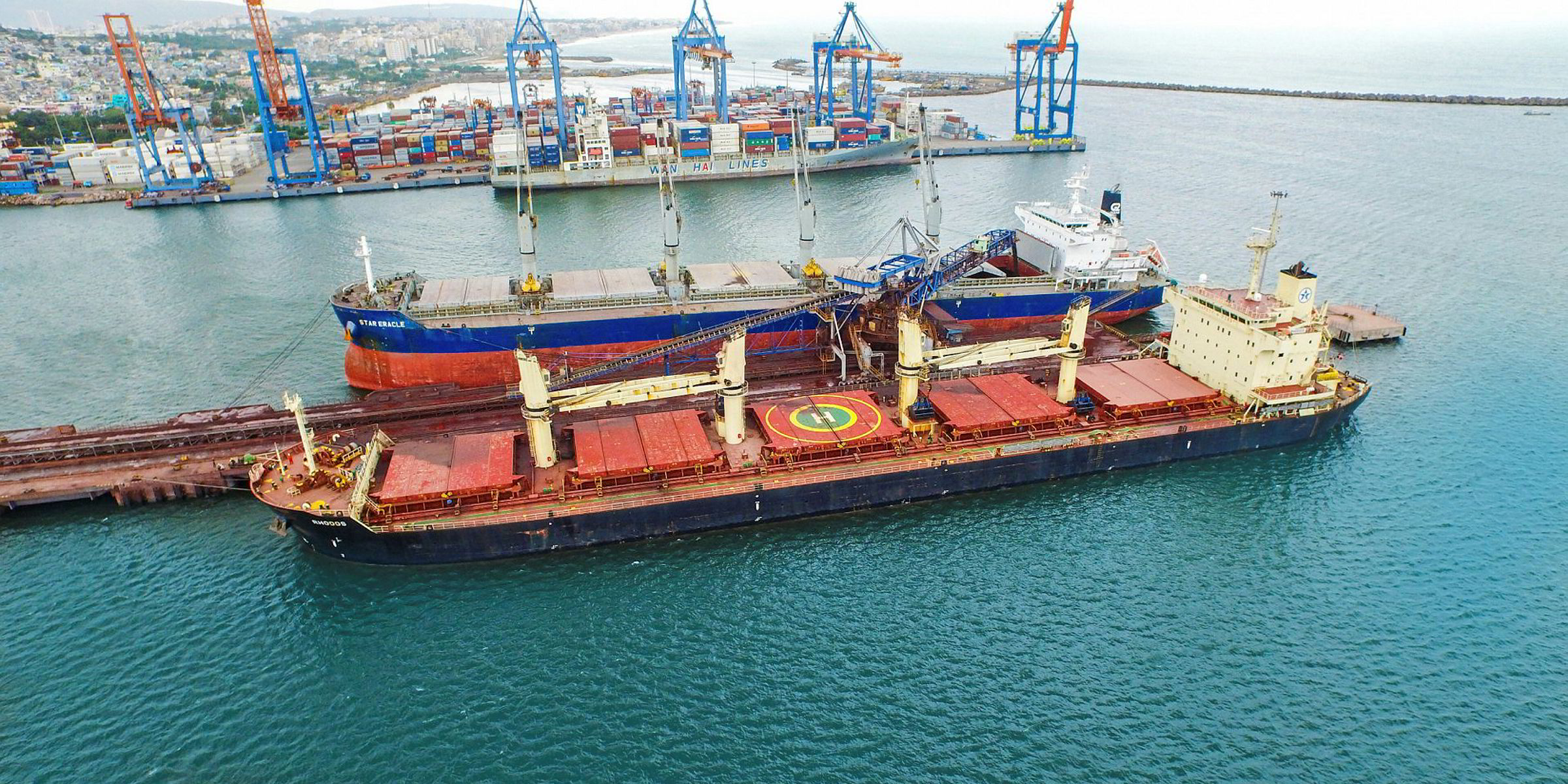Quarantine measures across the globe are threatening shipments of essential goods via seaborne trade, potentially worsening the coronavirus crisis, a panel of shipping experts have warned.
With the number of Covid-19 patients surging worldwide, governments have been imposing new containment measures at ports and hinterlands without advance notice, seriously hampering crew changes and cargo operations.
In a webinar held by Windward on Tuesday, James Valentine, a retired commander of the US Coast Guard, said preventative measures often not being coordinated is making matters worse.
“What one country is doing is maybe very different from what another country is doing and not all the responses are nationalised,” Valentine said.
“The industry is going to be, in many cases, navigating an extremely complex array of different types of prophylactic restrictions on their entry into port and what their crews can and can't do.”
No food
Peter Sand, Bimco’s chief shipping analyst, used declining grain exports from South America as an example of how quarantine measures can hurt shipping firms as well as overall well-being.
“Cargo flow does not only relate to the seaborne leg, but the hinterland connectivity is equally important. And that is basically where we've seen most measures being taken, disrupting the flow of cargo,” Sand said.
“In South America — where the grains exports season is just about to kick in and deliver support to an already reeling dry bulk market that's losing money every day — cities are closing down for truck drivers to enter the port parameters.”
“That, of course, brings around no cargoes to be shipped. That is a huge negative … for the shipowners and operators.”
“[And] this goes into feeding of human beings as well as animals on a global scale.”
“I'm a keen supporter of containing the virus … but we need to safeguard the flow of cargo in any way possible to limit the potential extra damage.”
Lockdown on Indian seafarers
In India, one of the world’s main suppliers of seafarers, Prime Minister Narendra Modi announced the nation would enter a 21-day lockdown from Wednesday.
“India is a major labour supply country, so this is going to have a massive impact,” Guy Platten, secretary general at the International Chamber of Shipping (ICS), said.
“I got one report saying 500 Indian seafarers [are stuck in] Southampton. [Then] I got one company tell me there are over 1,800 Indian seafarers who need to get home.”
With global health and trade at risk, governments, industry bodies and companies all should work together to find solutions to keep cargo flowing while containing the spread of the virus, according to some.
“We do need to join together across countries, across industries, [across] the private and public sectors,” Jason Greenblatt, former special envoy to the Middle East for US President Donald Trump, said.
Working together
To maintain crew operations, the ICS has teamed up with the International Transport Workers' Federation to ask the heads of four UN agencies to provide seafarers with the "key worker" status that airline crew and medical personnel have.
The four agencies are the IMO, International Labour Organization, UN Conference on Trade and Development and World Health Organization.
Platten said the ICS is also working with the World Shipping Council and other international organisations to establish guidelines on port quarantines and crew changes.
“I've never seen collaboration on this scale,” Platten said. “Every week now we have a call with them to try and discuss these issues.”
Platten has also called G20 ministers to step up to provide “pragmatic solutions” like they did in the wake of the 2008 financial crisis.
“There's a huge amount of work going on. We recognise that the need to try and get some sort of standardisation and some understanding of how this is best done, [and] understand the risks involved as well,” Platten said.








